Archive for the ‘Sam Mendes’ Category
73rd BAFTA Awards
THE 73rd BAFTA AWARDS /
THE BRITISH ACADEMY FILM AWARDS
Took place on Sunday 2nd February 2020 in London
at the Royal Albert Hall
BAFTA Winners in the Film Category:
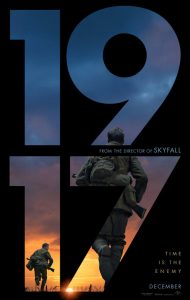
Best Film: 1917
Best Director: Sam Mendes
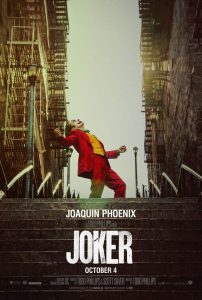
Best Actor: Joaquin Phoenix – Joker
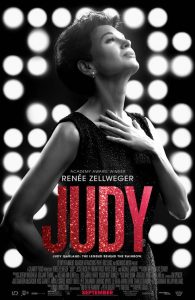
Best Actress: Renee Zellweger – Judy
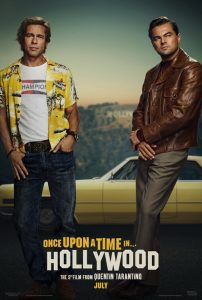
Best Supporting Actor: Brad Pitt – Once Upon a Time in Hollywood
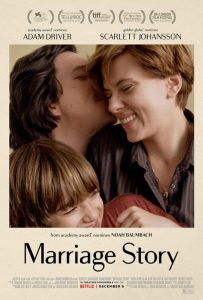
Best Supporting Actress: Laura Dern – Marriage Story
Best British Film: 1917

Best Original Screenplay: Han Jan-Win – Parasite
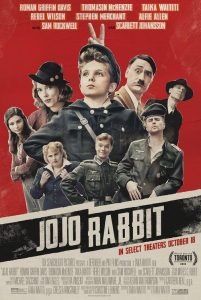
Best Adapted Screenplay: Taika Waititi – JoJo Rabbit

Best Costume Design: Jacqueline Durran – Little Women
Best Visual Effects: 1917
Best Foreign Language Film: Parasite directed by Bong Joon-Ho
Rising Star Award: Michael Ward
77th Golden Globe Awards
Took Place on Sunday the 5th January 2020 in Los Angeles hosted by the Hollywood Foreign Press Association – Here are the 2020 Winners in the Film Categories
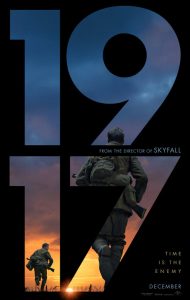
Best Film Drama: 1917

Best Film, Musical or Comedy: Once Upon a Time in Hollywood

Best Director: Sam Mendes – 1917
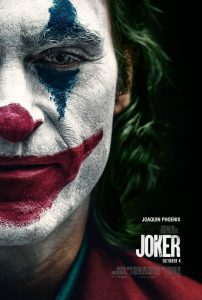
Best Actor Drama: Joaquin Phoenix – Joker
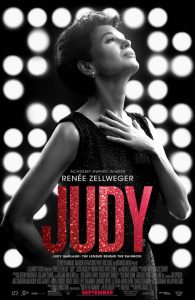
Best Actress Drama: Renee Zellweger – Judy
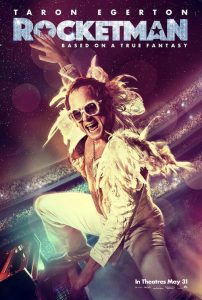
Best Actor, M/C: Taron Egerton – Rocketman
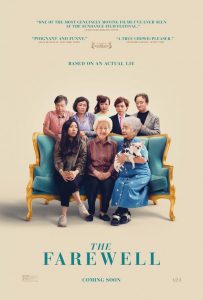
Best Actress, M/C: Awkwafina – The Farewell
Best Supporting Actor: Brad Pitt – Once Upon a Time in Hollywood

Best Supporting Actress: Laura Dern – Marriage Story
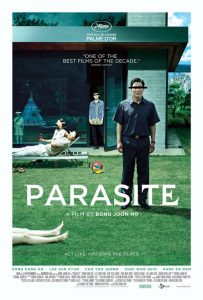
Best Foreign Language Film: Parasite directed by Boon Joon Ho (South Korea)
Best Original Screenplay – Quentin Tarantino – Once Upon a Time in Hollywood
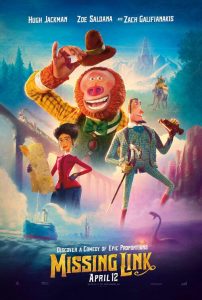
Best Animated Feature: Missing Link
The Intimacy of War
1917
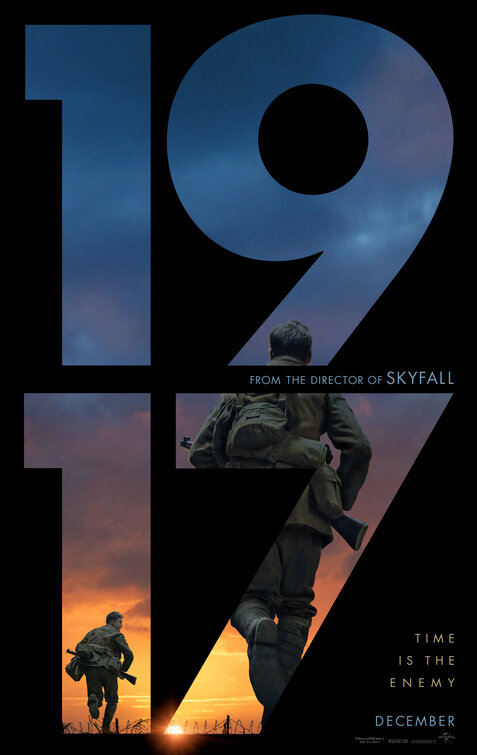
Director: Sam Mendes
Cast: Dean-Charles Chapman, George McKay, Daniel Mays, Colin Firth, Benedict Cumberbatch, Andrew Scott, Mark Strong, Claire Duburcq, Richard Madden
After being entangled with the Bond franchise and directing two films specifically Skyfall and Spectre, director Sam Mendes returns to a more intimate yet visually astounding portrait of war in the spectacular film 1917.
1917 is a major cinematic achievement as the entire film is done in one shot echoing Joe Wright’s astounding directing achievement in his World War Two drama Atonement. Mendes does something better. He directs 1917 from the point of view of two soldiers Lance Corporal Blake played by Dean-Charles Chapman (Blinded by the Light) and Lance Corporal Schofield played by George Mackay (Captain Fantastic, Pride).
Set in less than a twenty-four hour period on the 6th April 1917, this incredible film follows the terrorizing journey of two young British soldiers who are tasked with delivering a message deep in enemy territory that will prevent 1,600 men from walking into a deadly trapped set by the Germans in Northern France.
What makes 1917 so utterly riveting is not so much the acting as the visual interpretation of this harrowing journey beautifully photographed by Oscar winning cinematographer Roger Deakins (Blade Runner: 2049) with a haunting original score by Thomas Newman.
1917 is the reason to still watch films in the cinema – it is absolutely perfect and as war films go, this is one of the finest multi-layered interpretation of trench warfare ever conceived on film. Sam Mendes does a sterling job in memory of his Grandfather who fought in World War One.

1917 is a masterpiece of film making, poignant, riveting and epic, a massive landscape punctuated by the most intimate and heart wrenching scenes especially the night sequence in a burnt out French Village which has a fiery backdrop or the spectacular river sequence which eventually leads to the final scene which is equally explosive, while portraying all the intimacies and horrors of War.
With brief scenes by supporting actors including Oscar winner Colin Firth (The King’s Speech) and Oscar Nominee Benedict Cumberbatch (The Imitation Game), 1917 belongs to the two relatively unknown young actors Dean-Charles Chapman and George Mackay, who betray all the horror, devastation and exhaustion of trench warfare combined with the nonchalance of killing.
1917 is an incisive portrait of courage and bravery and of men finding their compassion while being tested under the most brutal circumstances. Everyone should watch this film. Sam Mendes has achieved his cinematic masterpiece.
Cinematically and historically, 1917 is highly recommended viewing and gets a film rating of 9.5 out of 10. Experience this film in a cinema. It’s breath taking.
66th BAFTA Awards
THE 66th BAFTA AWARDS /
THE BRITISH ACADEMY FILM AWARDS
Took place on Sunday 10th February 2013 in London
BAFTA WINNERS IN THE FILM CATEGORY:
Best Film: Argo
Best Director: Ben Affleck – Argo
Best Actor: Daniel Day-Lewis – Lincoln
Best Actress: Emmanuelle Riva – Amour
Best Supporting Actor: Christoph Waltz – Django Unchained
Best Supporting Actress: Anne Hathaway – Les Misérables
Rising Star: Juno Temple
Best British Film: Skyfall directed by Sam Mendes
Best Original Screenplay: Quentin Tarantino – Django Unchained
Best Adapted Screenplay: David O. Russell – Silver Linings Playbook
Best Costume Design: Anna Karenina
Best Foreign Language Film: Amour directed by Michael Haneke
Source: 66th BAFTA Awards
Killers and Liars
Spectre
Director: Sam Mendes
Cast: Daniel Craig, Lea Seydoux, Christoph Waltz, Naomie Harris, Monica Bellucci, Ben Whishaw, Ralph Fiennes, Rory Kinnear, Dave Bautista, Andrew Scott, Jesper Christensen
British director Sam Mendes follows up his 2012 blockbuster Skyfall, with the 24th installment of the 007 franchise aptly named Spectre, which serves as a pastiche of all previous Bond films, but particularly referencing Casino Royale, Quantum of Solace and Skyfall.
With a truly spectacular opening sequence shot during the Day of the Dead festival in the sprawling and crowded central plaza of Mexico City, Spectre promises better and bigger cinematic moments. On all accounts, Spectre delivers although at times, the Bond film could have been more tightly edited.
The action sequences in Mexico City, Rome and Tangier are gripping and the production design and cinematography are quite startling, shading the film between sequences of extreme illumination and murky darkness in keeping with the sinister undertone pervading the entire narrative.
Mexico City and Tangier are beautifully done, with gorgeous colours contrasting against the monochromatic elegance of the Roman streets at midnight or the snow covered Austrian Alps during ski season.
The Tangier scenes are clearly influenced by Bernardo Bertolucci’s classic film, The Sheltering Sky, especially when Bond and Dr Swann disembark from the Moroccan train into a sweltering Saharan desert, while the previous action on board mirrors that of The Spy Who Loves Me. Audiences should watch out for Dave Bautista (Guardians of the Galaxy) as the Spectre henchman Mr Hinx who has a penchant for popping a man’s eyes out with his thumb nails.
Daniel Craig returns as James Bond looking slightly weary and a tad less nimble but nevertheless maintaining a smirk on his face along with those dazzling blue eyes. In a stroke of genius casting, French actress Lea Seydoux is brilliant as Dr Madeleine Swann, daughter of the Pale King, whilst the villain is suitably menacing and at times slightly camp, Franz Oberholzer better known as the evil mastermind with a penchant for white Persian cats, last seen in You Only Live Twice, On Her Majesty’s Secret Service and Diamonds are Forever.
Naturally, Oscar winner Christoph Waltz (Inglourious Basterds, Django Unchained) is fabulous as Bond’s crazed arch enemy, but somehow does not make as brilliant an impression as Javier Bardem did as Raoul Silva in Skyfall.
With the absence of Judi Dench as M, Ralph Fiennes, appears craggy and irritable as the new M, reminiscent of the original M in the 1960’s Bond films. Refreshingly, Naomie Harris as Moneypenny and Ben Whishaw as the technically gifted Q have bigger roles in Spectre, acting always as Bond’s necessary sidekicks. Watch out for a brief but glamourous cameo by Monica Bellucci as Lucia Sciarra and Jesper Christensen as the ubiquitous Mr White, last seen in Quantum of Solace.
Spectre, which stands for the Special Executive for Counter-intelligence, Terrorism, Revenge and Extortion is subtly portrayed as a pervasive and dangerous shadow organisation responsible for all sorts of international atrocities, which in the 21st century is particularly apt. As the visual references abound throughout Mendes’s Spectre, it will only be the serious Bond fans that will spot all those cinematic clues. In this respect, Spectre pays tribute to the success of the longest running film franchise ever, without undermining its inherent and enduring appeal.
Spectre is highly recommended viewing for ardent Bond fans, although some might find this film slightly long and the narrative muddled, but then again, one has to identify all the past 007 signifiers, for Spectre to be truly appreciated.
The question remains, much like the creepy opening sequence, is there life after Spectre?
57th Golden Globe Awards
The 57th Golden Globe Awards
Took place on Sunday 23rd January 2000 by the Hollywood Foreign Press Association
Golden Globe Winners in The Film Categories:
Best Film Drama – American Beauty
Best Actor Drama – Denzel Washington – The Hurricane
Best Actress Drama – Hilary Swank – Boys Don’t Cry
Best Actor Musical/Comedy – Jim Carrey – Man on the Moon
Best Actress Musical/Comedy – Janet McTeer – Tumbleweeds
Best Film Musical/Comedy – Toy Story 2
Best Supporting Actor – Tom Cruise – Magnolia
Best Supporting Actress – Angelina Jolie – Girl, Interrupted
Best Director – Sam Mendes – American Beauty
Best Foreign Language Film – All About My Mother (Spain)
72nd Academy Awards
72nd Academy Awards
26th March 2000
Oscar Winners at the 72nd Academy Awards
Best Film – American Beauty
Best Director: Sam Mendes – American Beauty
Best Actor: Kevin Spacey – American Beauty
Best Actress: Hilary Swank – Boys Don’t Cry
Best Supporting Actor: Michael Caine – The Cider House Rules
Best Supporting Actress: Angelina Jolie – Girl Interrupted
Best Original Screenplay – Alan Ball – American Beauty
Best Adapted Screenplay – John Irving – The Cider House Rules
Best Foreign Language Film – All About my Mother directed by Pedro Almodovar (Spain)
Best Documentary Feature – One Day in September directed by Arthur Cohn and Kevin Macdonald
Best Original Score – John Corigiliano – The Red Violin
Best Cinematography – Conrad L. Hall – American Beauty
Best Costume Design – Lindy Hemming – Topsy Turvy
Best Film Editing – Zach Staenberg – The Matrix
Best Visual Effects – The Matrix
Source – http://en.wikipedia.org/wiki/72nd_Academy_Awards
Razor Sharp 007 is Back
Skyfall
From Shanghai to Scotland, Skyfall, the 23rd film in the James Bond franchise is both an intriguing espionage thriller closer to a John le Carre novel, yet beautifully retaining all the quintessential 007 traits which have made all the Bond films the most successful franchise in cinema history from fast cars, exotic locations, dangerous animals and naturally nubile Bond girls leading the smartly suited spy to the evil villain who is always masterminding destruction, mayhem or in this case, revenge.
*
There was much anticipation leading up to Skyfall as it also marked 50 years of James Bond, when the first Bond film burst on the screen in 1962 introducing Sean Connery as Bond in the exotic Dr No. Whilst a lot has changed in 50 years, the essence of Bond as a suave, international spy chasing after megalomaniac villains in far corners of the globe has always been the same. In Skyfall, whilst there is more angst explored in the relationship between Bond and M, there is an equal share for the hideously brilliant villain, Raoul Silva, played with psychotic panache by Oscar-winner Javier Bardem who is hell bent on revenging M, head of Mi6 for allowing him to be captured by the Chinese as the British relinquished Hong Kong in 1997.
*
Skyfall also marks a departure from other Bond films in that there is less exotic locations outside the UK but more British based action which is equally thrilling especially the Tennyson quoting assassination sequence in Westminster or the brilliant explosive climax at Bond’s long forgotten Scottish family estate Skyfall in rural Scotland.
What really raises the level Skyfall is the brilliant direction by Sam Mendes of American Beauty and Revolutionary Road fame, who not being an action director brings more dysfunctional characterization and interpersonal twists to the Skyfall narrative complimented by the brilliant acting talents of Bardem apparently handpicked by Daniel Craig to play the villain and of course Dame Judi Dench as M, Bond’s shadowy, yet tough mother figure. All Bond’s mother issues are resolved in Skyfall along with coming to terms with a tragic childhood in the remote Scottish highlands.
*
Skyfall is superb yet not conventional multi-layered Bond film crisply shot by Roger Deakins’s excellent photography especially noticeable in the Shanghai Skyscraper sequence, and while the action sequences are not as outlandish as some of the previous more bizarre Bond films such as Moonraker or The Spy Who Loved Me, this is the threadbare, recession hit 21st century and not the lavish late 1970’s.
Daniel Craig holds his own in his third portrayal as Bond and is more comfortable in this iconic role as a razor-sharp, still sexy and slightly jaded spy always ready for action. From a fabulous attention-grabbing chase scene in Istanbul to the wonderful opening sequence which is both lethal and seductive, choreographed to British singer Adele’s gorgeous rendition of the themesong: Skyfall, viewers are promised a seductive, slick and emotionally engaging Bond film.
*
Of particular note is the engaging encounter between Bond and the ruthless suggestive villain Silva, an expert internet hacker in an abandoned island outside the Special Administrative Region of Macau. The scene between Craig and Bardem is absolutely superb with Javier Bardem using the full range of deviancy as the enemy of Mi6 and a ruthless hypnotic villain. Skyfall is razor sharp cinema, occasionally funny and essentially British and promises not the end of a franchise but an elegant re-alignment of the Bond universe for the Second Decade of the 21st century living up to the charming Bond family motto, The World is Not Enough….
Through the White Picket Fence
Revolutionary Road
Last year there was ample hype about the Sam Mendes film, Revolutionary Road starring Kate Winslet and Leonardo di Caprio. Whilst the Oscar buzz only got a best supporting actor nod for Michael Shannon, the film itself about the brittle deterioration of a marriage in 1950s suburban Connecticut was seamless and superbly acted. Kate Winslet reprised a similar role as she did in Todd Field’s brilliant 2006 film, Little Children as a anxious housewife trapped in the monotony of a soulless marriage.
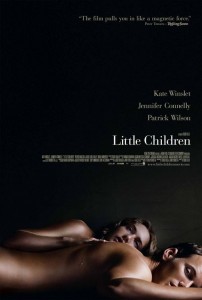
The Random act of Infidelity
Whilst both films are worthy of attention, more notably Little Children, the novel, Revolutionary Road is an absolute must-read. Deftly crafted with superb subtle characters whilst referring to major themes of discontent, disillusion and the nature of insanity.
~
The novel, Revolutionary Road, written by Richard Yates and is an ironic, sometimes humourous and especially scathing look at the hollowness of the Great American Dream especially piognant in its depiction of a society bound by the virtues of marriage, fidelity, corporate ambition and the myth of the white picket fence. Highly recommended novel, even better than the film adaptation.
Revolutionary Road will resonate now, nearly fifty years on, as when it was first praised in 1962. The prose is wonderfully crafted with such detail and poignancy that clearly aims to undercut the sophisticated era it was meant to evoke.
Both the novel and the film version of Revolutionary Road are highly recommended but its always best to read the novel first before seeing the cinematic version.
































